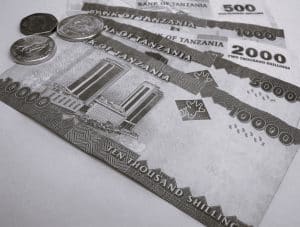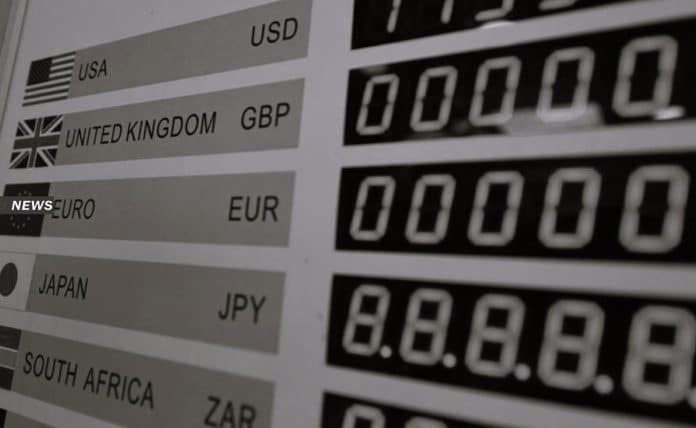Your Guide to Understanding Currency Exchange Rates for the Tanzanian Shilling
Are you planning a trip to Tanzania? Understanding the currency exchange rate Tanzanian Shilling is key to ensuring a smooth and cost-effective travel experience. In this guide, we will demystify the complexities surrounding currency exchange rates and help you make informed decisions when converting your money.
Factors that Influence Currency Exchange Rates
Currency exchange rates are determined by a multitude of factors that can either strengthen or weaken a currency. Understanding these factors can give you insight into how the Tanzanian Shilling (TZS) will perform. Here are some key factors that influence currency exchange rates:
- Interest Rates: Central banks play a significant role in determining a country’s interest rates. Higher interest rates tend to attract foreign investors, leading to an increased demand for the local currency and strengthening its value. Conversely, lower interest rates can result in a decrease in demand and a depreciation of the currency.
- Inflation: The rate at which prices of goods and services rise in a country, also known as inflation, can impact currency exchange rates. If a country experiences high inflation, the value of its currency may decrease as it becomes less attractive to investors. On the other hand, low inflation can lead to a stronger currency.
- Political Stability: Political stability is crucial for a country’s economic growth and can significantly impact its currency. Countries with stable political systems and sound economic policies tend to have stronger currencies. Unstable political climates or geopolitical tensions can cause currency volatility.
- Economic Performance: A country’s economic performance, including factors like GDP growth, trade balance, and employment rates, can influence its currency exchange rate. Strong economic growth and positive indicators generally lead to a stronger currency, while weak economic performance can result in a depreciation of the currency.
- Market Sentiment: Market sentiment, often influenced by global events and investor confidence, can impact currency exchange rates. Positive market sentiment towards a country’s economy can lead to an appreciation of its currency, while negative sentiment can cause a decline.
Understanding these factors can give you a better grasp of how the currency exchange rate Tanzanian Shilling, may fluctuate against other currencies. However, it’s important to remember that exchange rates can be unpredictable and subject to various external factors.
Understanding the Tanzanian Shilling (TZS)

The Tanzanian Shilling (TZS) is the official currency of Tanzania. It is issued by the Bank of Tanzania and is denoted by the symbol “TSh.” The currency is divided into 100 cents, with coins available in denominations of 50, 100, 200, and 500 shillings, and banknotes available in denominations of 1000, 2000, 5000, 10,000, and 20,000 shillings.
When visiting Tanzania, it’s essential to familiarize yourself with the currency to avoid confusion and ensure you receive the correct amount during transactions. The Tanzanian Shilling is widely accepted throughout the country, and it’s advisable to carry some cash for smaller establishments that may not accept credit cards.
While the Tanzanian Shilling is the official currency, some tourist-heavy areas may also accept major foreign currencies such as the US Dollar or Euro. However, it’s important to note that you may receive change in Tanzanian Shillings, and the currency exchange rate Tanzanian Shilling offered for foreign currencies may not be as favorable as using the local currency.
How to Convert Currencies Using Exchange Rates
Converting your money to Tanzanian Shillings involves understanding exchange rates and the different methods available for currency conversion. Exchange rates represent the value of one currency in relation to another and are constantly changing due to market fluctuations.
There are two main types of exchange rates to be aware of:
- Spot Rates: Spot rates refer to the current market exchange rate for a particular currency pair. These rates are commonly used for immediate transactions and can be accessed through various financial institutions or online platforms. Spot rates are often influenced by supply and demand dynamics and can fluctuate throughout the day.
- Tourist Rates: Tourist rates, also known as retail rates, are the exchange rates offered to individuals when converting their money at banks, currency exchange kiosks, or hotels. These rates are typically higher than spot rates and include a commission or fee. While convenient, tourist rates may not offer the most favorable exchange rates, so it’s important to compare options before converting your money.
To calculate the amount you will receive in Tanzanian Shillings, multiply the amount of your home currency by the current exchange rate. It’s worth noting that some exchange providers may also charge additional fees or commissions, which can further impact the amount you receive.
Historical Trends of the Tanzanian Shilling Exchange Rate
Analyzing historical trends of the currency exchange rate Tanzanian Shilling can provide valuable insights into its performance against other currencies over time. However, it’s important to approach historical data with caution, as past performance does not guarantee future results.
The Tanzanian Shilling has experienced fluctuations against major currencies like the US Dollar and Euro. In recent years, the exchange rate has generally ranged between 2200-2300 Tanzanian Shillings per US Dollar, with some periods of volatility due to external factors such as global economic events or changes in domestic policies.
To get a better understanding of historical trends, you can refer to reliable sources such as the Bank of Tanzania’s website or financial news platforms that provide historical exchange rate data. It’s important to keep in mind that exchange rates are influenced by various factors, and historical trends should be used as a reference rather than a definitive indicator of future exchange rates.
Tips for Getting the Best Exchange Rate for the Tanzanian Shilling
Getting the best currency exchange rate Tanzanian Shilling, can help you maximize the value of your money. Here are some tips to consider:
- Compare Exchange Options: Before converting your money, compare the exchange rates and fees offered by different providers. Banks, currency exchange kiosks, and online platforms may offer varying rates, so it’s worth shopping around to find the best deal.
- Avoid Airport Exchange Counters: Exchange counters at airports often offer less favorable rates due to higher operating costs. If possible, exchange a small amount of money at the airport for immediate expenses and seek better rates elsewhere.
- Use Local ATMs: Using local ATMs can be a convenient and cost-effective way to obtain Tanzanian Shillings. However, be mindful of any fees charged by your bank for international withdrawals and inform your bank of your travel plans to avoid potential card blocks.
- Be Wary of Unofficial Exchange Services: While it may be tempting to exchange money with street vendors or individuals offering better rates, be cautious of potential scams or counterfeit currency. Stick to reputable exchange providers to ensure the authenticity of your transactions.
- Consider Prepaid Travel Cards: Prepaid travel cards can be a secure and convenient option for managing your money while traveling. These cards allow you to load funds in different currencies, including the Tanzanian Shilling, and offer competitive exchange rates. Additionally, they provide added security and can be easily replaced if lost or stolen.
Where to Exchange Currencies for the Tanzanian Shilling
When it comes to exchanging currencies for Tanzanian Shillings, you have several options to choose from. Here are some common places where you can exchange your money:
- Banks: Banks are a reliable and secure option for currency exchange. They often offer competitive rates and may have a wider range of available currencies. However, banks may have limited operating hours, so it’s advisable to check their hours of operation before visiting.
- Currency Exchange Kiosks: Currency exchange kiosks can be found in popular tourist areas, airports, and shopping centers. While convenient, be cautious of high fees or unfavorable rates. It’s advisable to compare rates with other providers before making a decision.
- Online Platforms: Online platforms and mobile applications provide convenient access to currency exchange services. These platforms often offer competitive rates and allow you to conveniently exchange your money from the comfort of your own home. However, it’s important to ensure that the platform is reputable and secure before initiating any transactions.
It’s worth noting that some businesses in Tanzania may only accept cash payments, especially in more remote areas. Therefore, it’s advisable to have some Tanzanian Shillings on hand for these situations.
Currency Exchange Scams to Watch Out For

While most currency exchange providers operate legitimately, it’s essential to be aware of potential scams to protect yourself from fraudulent activities. Here are some common currency exchange scams to watch out for:
- False Exchange Rates: Some unscrupulous exchange providers may display misleading exchange rates to attract customers. Always compare rates with reputable sources and be wary of rates that seem too good to be true.
- Hidden Fees: Some providers may advertise attractive exchange rates but charge hidden fees or commissions that significantly reduce the amount you receive. Always inquire about any additional fees before completing a transaction.
- Counterfeit Currency: When exchanging money, be vigilant of counterfeit currency. Familiarize yourself with the security features of the Tanzanian Shilling and check the authenticity of banknotes before accepting them.
To avoid falling victim to scams, stick to reputable exchange providers, conduct thorough research, and be cautious of any suspicious practices.
Resources for Tracking and Calculating Currency Exchange Rates
Several resources are available to help you track and calculate the currency exchange rate Tanzanian Shilling. Here are some reliable sources:
- Bank of Tanzania: The official website of the Bank of Tanzania provides up-to-date exchange rates for the Tanzanian Shilling. This is a reliable source for accurate and current exchange rate information.
- Financial News Platforms: Financial news platforms such as Bloomberg or Reuters often provide real-time exchange rate data. These platforms also offer historical exchange rate charts and analysis, allowing you to track trends and make informed decisions.
- Currency Converter Websites: Currency converter websites, such as XE or OANDA, provide convenient tools for calculating currency exchange rates. These websites allow you to input the amount and currencies you wish to convert and provide the corresponding exchange rate.
By utilizing these resources, you can stay informed about the current exchange rates and make well-informed decisions when exchanging your money.
Understanding the currency exchange rate Tanzanian Shilling is crucial for anyone planning a trip to Tanzania. By considering the factors that influence exchange rates, familiarizing yourself with the Tanzanian Shilling, and following the tips outlined in this guide, you can make informed decisions when converting your money.
Remember to compare exchange rates, be cautious of potential scams, and consider the most convenient and cost-effective options for your currency exchange needs. Whether you’re exploring Tanzania’s stunning landscapes or conducting business in the country, having a good understanding of currency exchange rates will help you manage your finances effectively and ensure a smooth travel experience.
For more articles related to Financial Services in Tanzania, click here!































